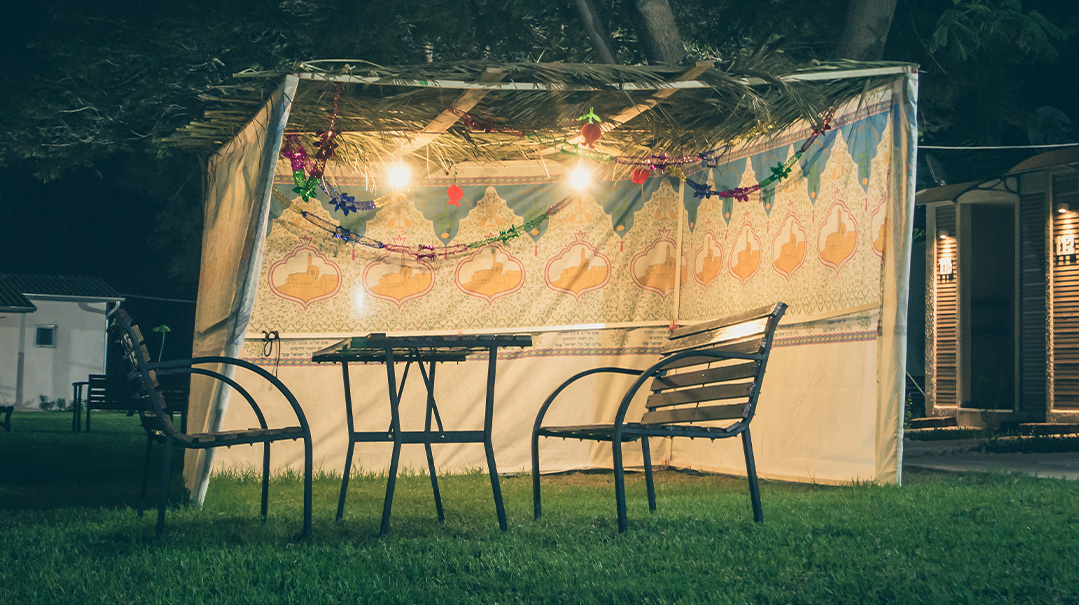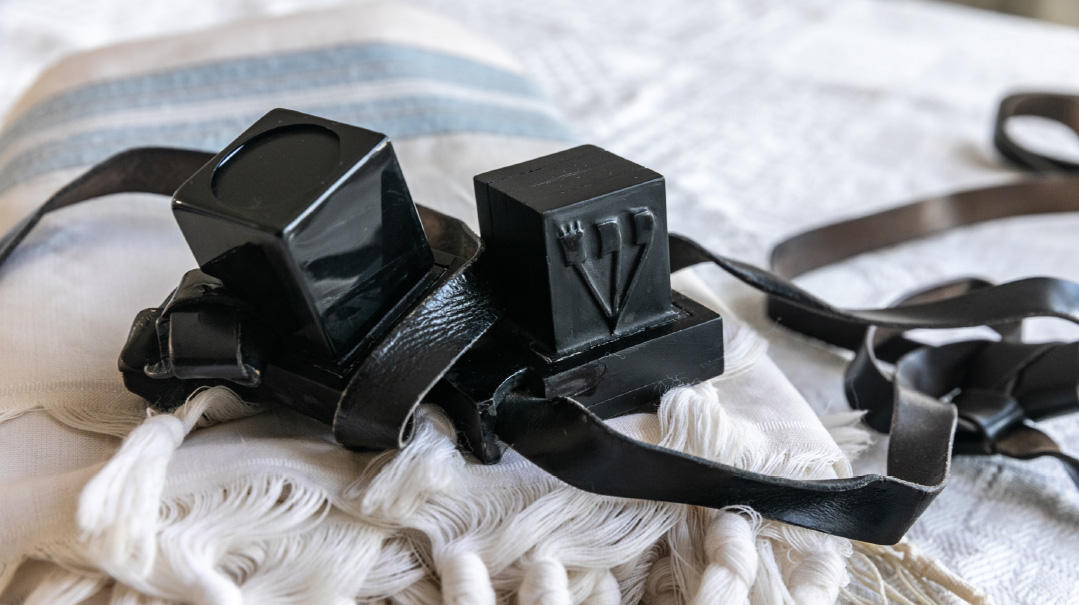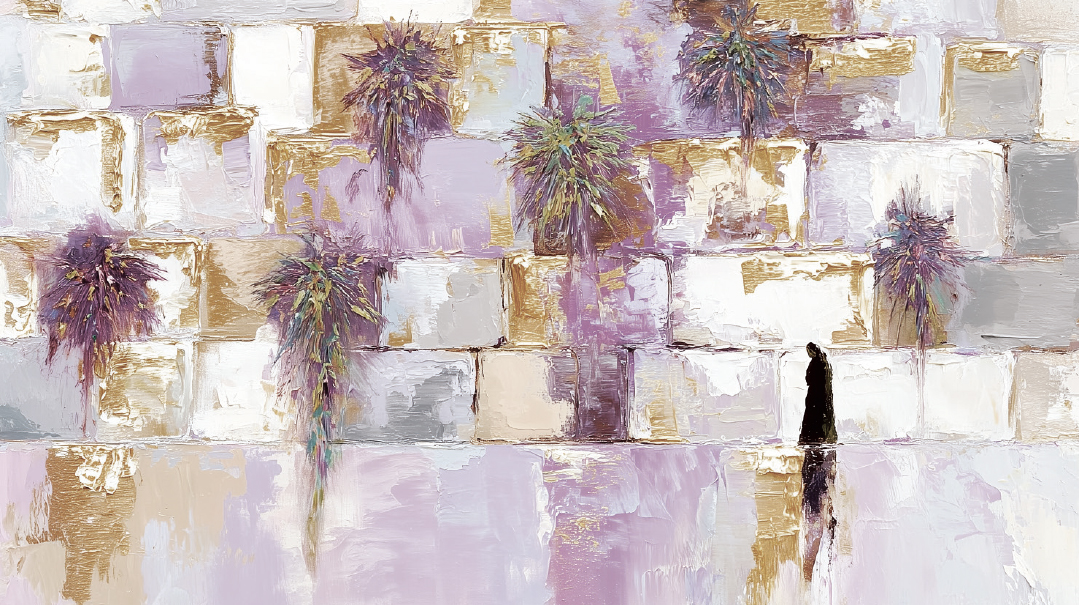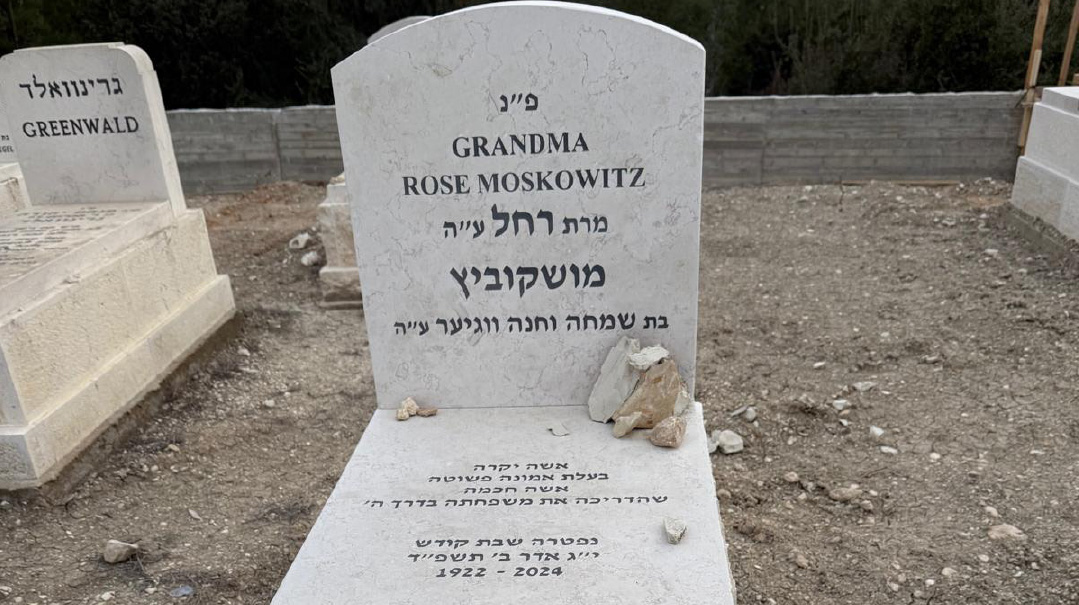At His Table
| October 6, 2022We yearn for Bobbie’s twinkling eyes, the naïveté of childhood, and a joy unsullied by disappointment at life not turning out exactly as you planned

IT is the ghosts that give me pause.
Back then, seating was tight, and it was cold. So cold. We sat in huge coats (Triple F.A.T. Goose™), and, loving brothers that we were, we fought for every inch of space. Our puffy sleeves, streaked with honey and shiny spots of fish sauce, pushed Rebbi’s devar Torah sheets between platters of roast and the Hoffman signature cranberry relish.
Once we figured out turns, we told our enthralled audience how the letters of “succah” are a remez for each kosher model. We felt our mother’s silent encouragement as we muddled through and heard Ta’s vocal pride when we made it to the end of the page.
And under the warmth of Bobbie’s adoring gaze, we were cozy. We sang “Atah Bechartanu” and joined the block in a rousing rendition of “Harachaman Hu Yakim Lanu.”
My parents’ succah is bigger now. Succos is more convenient. The timer turns the lights on and off at proper intervals, we’ve figured out how to bring in the dishes safely (Tatty sometimes even lets us eat on plastic these days). The vertlach are more sophisticated, fine wine is poured into stemware, and we usually sit in our shirtsleeves.
And we look for the ghosts. We yearn for Bobbie’s twinkling eyes, the naïveté of childhood, and a joy unsullied by disappointment at life not turning out exactly as you planned. The nostalgia comes thick and fast. The strawberry shortcake that ended up in the oven, the esrog I dropped on the first day before davening, the simple neighbor who carried his lulav to shul on Shabbos, proudly declaring that the eiruv was fine.
Among the ghosts, we are searching. For days when the only questions we had were easily answered with a mother’s hug and a grandmother’s unconditional love. When the windows to our neshamos weren’t yet smudged by sweaty fingerprints, desperately trying to push through unforgiving glass.
Going out to the succah was an adventure, buoyed by a child’s unspoken wonder at the promise of beauty undisturbed by a past beyond his comprehension. The succah was safe back then, free of pain and loss, and among those ghosts, we look to regain that safety. Usually, we give up the fight. It just won’t ever be the same again. Not Succos, and not life.
And that’s where, amid rose-colored recollections, perhaps we are missing the point. Life in this world was never meant to be perfect, and it wasn’t in the old days, either. But children are given a gift of viewing the world through a prism of innocence and unquestioned beauty that remains for the inevitable times when that perspective is challenged. It allows us to stay close when we feel we’re being pushed away, to run toward light that looks too blinding, and to feel warmth when we are numb from the cold.
So it was with the holy generation now slipping away. People who had lived and lost, been broken and left to contemplate the giant holes ripped in their hearts. Their windows also had smudges, and their questions were difficult too. They also looked among the ghosts.
Ghosts of town rabbanim and their kehillos, who had bequeathed them unshakeable faith. People who sang “Atah Bechartanu,” cried during “v’ratzisa banu,” and sat in their freezing pre-churban succahs, warmed by their deep pride at “v’rommamtanu” and “v’kidashtanu.” Ghosts of strong fathers, devout mothers, and children safe in their arms and emunah peshutah.
And in those ghosts, they found something, they arrived at the answers every Jew instinctively knows to be absolute truth.
The succah has always been outside, in the cold and dark, and there has always been, inside those four simple walls, a blazing warmth and light.
And so they went out into the winter, connected to Him and His fire. They ventured to the succah, with the comprehension that the Tzila Dimheimnusa was real. The questions were not as important as the knowledge that Tatte in Himmel knows all the answers, and that one day, they would too.
In the succah, they were children again. Sitting safely at HaKadosh Boruch Hu’s table, and with a joy unsullied by disappointment at life not going exactly as planned. They said the old vorts, sang the old niggunim, the smudges were wiped away, and their neshamos shone through. “Atah Bechartanu” rose from their throats, and “Harachaman Hu Yakim” was a prayer that will be answered, a promise that will be kept.
On Succos, He remembers, and we remember. He remembers “lechteich acharai mamidbar,” and we remember that through it all, He has never left. We have repented, been forgiven, and been given a place at the table, yet again.
Yes, Bobbie is gone, along with much of the generation that celebrated the secret of finding Him even outside. But they passed it on. And although sometimes it seems so cold, and the loss and pain and confusion of endless galus weighs on our hearts, Am Yisrael pulls up closer to His table, and, from windows of clear souls, in childlike joy we sing.
Atah bechartanu. V’ratzisa vanu. V’rommantanu. V’kidashtanu.
(Originally featured in Mishpacha, Issue 931)
Oops! We could not locate your form.






